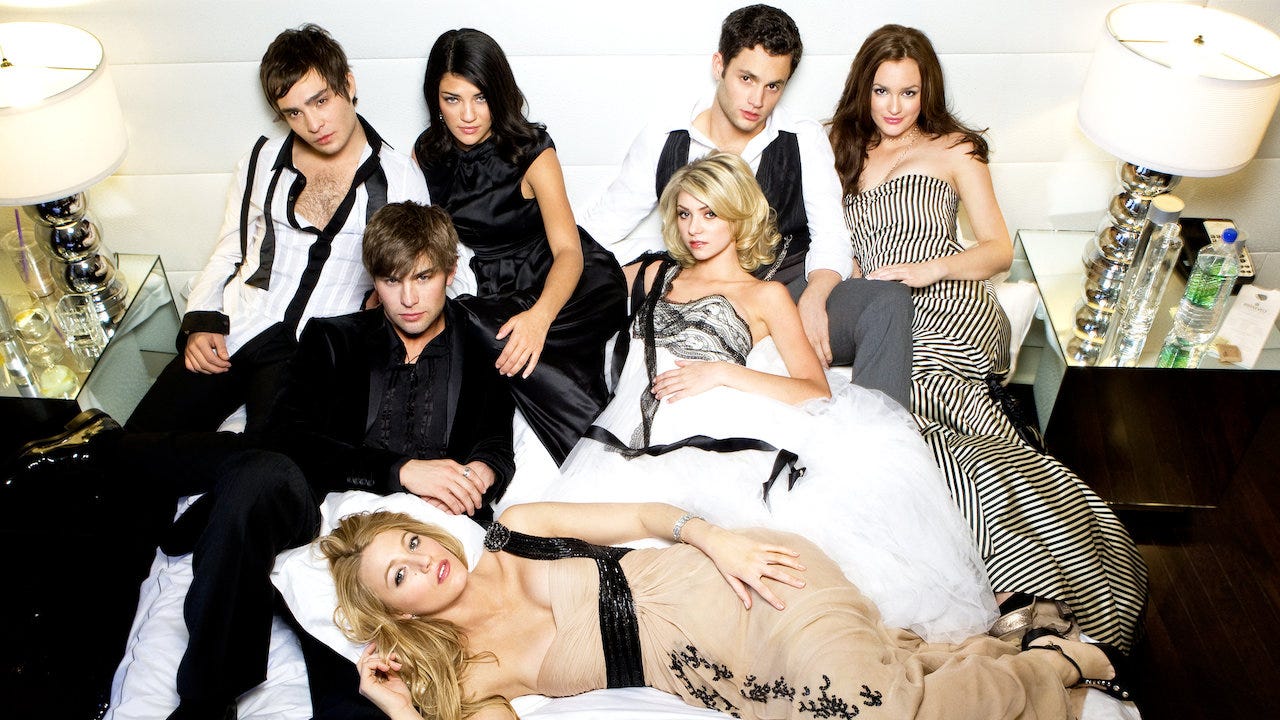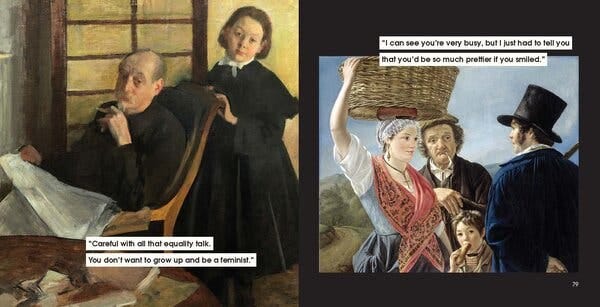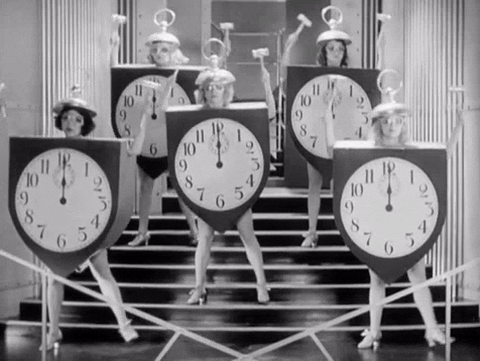Edition #36: So You Want to Join the Club?
Plus, Uber's CEO pretends to care, mansplaining as told by 17th century art, and why time feels so weird in 2020.

A Note From the Editor
When I first moved to New York nearly three and a half years ago, I was floating through a transitional period in my career. Closing one door on a lucrative, albeit soul-sucking job and opening another into the great unknown. I spent a lot of time dreaming that first year, and an equal amount of time perusing social media profiles of strangers, as one does. It was during that time when I discovered what I believed to be My Ultimate Dream Company (MUDC). It was the epitome of an elite NYC media startup and they had it all: two young, good looking co-founders, an impressive restaurant review platform, an open-concept office that probably served beer on tap, and a group of writers who didn’t come from traditional writing backgrounds (a fact that the company loved to disclose in interviews and “About” sections).
In what doubles as a fatal character flaw and an essential slice of my personality, I became obsessed. I followed the core employees on Instagram and memorized every detail of their LinkedIn profiles, calculating the number of years they’d been out of college and stacking their experiences up against my own — a mental obstacle course riddled with guesswork and self-doubt. I consumed their content like a fiend, reading every newsletter, liking every Instagram post, eating exclusively at restaurants they recommended. In the midst of all this, I formed a deep, achy crush on one of their writers (a stranger whom I would never meet), and imagined myself singing a karaoke duet of Hamilton’s “Say No to This” at a work event with their ostentatious marketing director (another stranger). I literally dreamed about this place, frequently, and all of the overactivity in my imagination elevated the company to a level of celebrity fandom that, in retrospect, feels embarrassing to admit.
It wasn’t a fair-weather obsession, either, it became so prevalent in my life that my friends and family all knew about it. When I found a suitable role at MUDC, I spent hours perfecting my resumé, printing out copies to mail to the office for good measure, but I got a standard rejection straightaway. I was crushed, but not deterred. The following year, while working in a larger role at a different company, I discovered a potential connection for MUDC. Inspired by my good fortune, I made a creative project explaining why MUDC should hire me, shot it off to the founders, and asked my newfound connection to put a good word in. All my plotting and planning finally landed me an interview, in which a disinterested recruiter and I quickly discovered that I was not a good fit for the role. They would keep me in mind for future openings, she promised, but during that call, I realized I would probably never work for the company. Curiously enough, I was finally okay with it.
Last week I saw that the marketing director, the one from the imagined karaoke duet, was leaving the company and it felt strange — akin to looking back on an ex only to recognize the thickness of your rose-colored glasses or like re-watching a favorite childhood TV show as an adult. I realized it wasn’t the job I was pining after so much as what I thought the job would say about me. It would codify my slippery persona as an Interesting New Yorker, giving me something to attach myself to. I’d be able to say, “Oh, me? I work for MUDC,” at imagined dinner parties, ones that I was sure I’d get invited to if only I had said job. The “cool” employees would take me in, and by osmosis, I would become cooler, more compelling. Better.
I wanted the job because I wanted to be a different version of myself. A version that, for whatever reason, didn’t feel attainable on my own accord.
I’ve found myself reverting back to this false belief system at various points in my life: that if I can sneak my way into an exclusive circle of people, maybe then I will feel worthy. If I get the approval of an intelligent, It-Girl New York writer whose work makes me feel like a blind kitten with a keyboard, maybe then I will become A Real Writer. If I can just get in with this group or that one, and if the right person tells me I’m good enough, then all my anxieties and fears will dissipate into thin air and I’ll morph into a savant-by-association, my proverbial cup spilling over with wisdom and wit.
My therapist would speculate that I’m placing value on validation from others versus fostering a sense of self-worth, and she would be correct. Why is it that I (we?) look everywhere but inward to get the things we need? Why do we need other people, in the form of an exclusive group, to prop us up? It makes me think of the inclination children have to form “clubs”, based on nothing but satisfying a primal need for acceptance, a need so instinctual that it doesn’t need to be taught to be experienced. I wonder whether it’s possible to feel validated as an artist or as a writer without the high brow stamp of communal approval. I also wonder if the aforementioned approval is even valid; whether it’s based on merit or simply the Joan Didion effect.
Cheers, my dears, and I hope you find acceptance from the place that counts (yourself, baby!). I wonder whether you’ve ever found your sense of self-worth contingent upon the approval of others, and if so, how you dealt with it. Share your thoughts below.
Three Pieces of Content Worth Consuming
An Op-Ed Where Uber’s CEO Pretends To Care About Gig Workers. A new California bill requires app-based companies to re-classify gig workers as employees, providing them with basic protections like healthcare and unemployment insurance — and Uber’s CEO is not having it. The overall tone of the piece reads something like this: now that we're getting forced to treat our labor force like real people, Uber is ready to blame the government for not enacting sweeping legislation to protect gig workers in the first place. If they would've had laws in place, we would have treated our workers better, we promise! Consider the wording of this opening paragraph:
“Many of our critics believe that Uber has failed drivers by treating them as contractors, and that we will do anything to avoid the cost of employee benefits like health insurance. Given our company’s history, I can understand why they think that. But it’s not true, and it’s not what I believe."
A Case for Treating Your Feelings Like Feedback. For a long time, I had a stringent stance on feelings. Negative ones weren't to be indulged, à la the law of attraction to the utmost extreme (“NEGATIVE THOUGHTS ATTRACT NEGATIVE THINGS,” my brain screamed). I'd push down any looming sense of dread or repress my anger, and as a result, I only felt worse. Maybe that’s why I loved this tidy explanation of why feelings should be treated as feedback, and how to gauge whether your reaction to a situation is coming from the matter at hand or from some other unresolved place.
But Really, What Is MasterClass Selling? Even if you aren’t signed up for MasterClass, you’ve probably seen their ads everywhere. Perhaps you’ve been intrigued, wondering how an hour-long video could possibly teach you to play tennis like Serena Williams. The answer? It can’t, but maybe that’s not the point. On another note, shortly after reading this piece, I came across another one, exploiting a new WikiHow style page that rips off content from MasterClass, distilling its lessons into poorly designed graphics. Two pieces of major coverage in the same week? Seems fishy to me. I would put $25 on MasterClass launching something new this month. Any takers?
Perhaps You Should…
Learn About Mansplaining via 17th Century Art

The story of how a heretofore anonymous writer took to Twitter to pair 17th century art with modern-day mansplaining captions is worth a read in itself, and the results are pure comedic gold. With the chauvinistic captions in tow, I can finally see myself reflected in these old-timey women, and I will most definitely be purchasing a copy of this coffee table book.
**Bonus Content** (Why Time Feels Weird in 2020)

If I had a dollar for everytime I said (or heard someone say) something like, “was that yesterday, or three months ago?” this year, I would have enough money to buy myself a very nice car. This interactive graphic explains what physicists have been telling us all along, that time is an illusion (hence why it feels so weird in 2020).
A Quote From A Book You Should Read:
“If it is true for you, it is true for someone else, and you are no longer alone.”
-The Nickel Boys by Colson Whitehead
This newsletter is best served with a side of conversation, so drop your opinions, reflections, and thoughts in the comments below and let’s get to talking.
Or, share the most thought-provoking piece from today’s edition with someone you love, then call them up to discuss, debate, and percolate. As a wise woman once said, “Great minds discuss ideas.”




Love this week's intro! I feel like the idea of MUDC can be related to so many things in life - a certain partner, apartment, material object, etc. I so often fall into the loop of thinking if I just had this one thing THEN i'll be happy. Like you said, looking everywhere but inward! Also, this is my favorite part about you: "In what doubles as a fatal character flaw and an essential slice of my personality, I became obsessed."
Also, this Joan Didion essay is amazing. I didn't realize how many women writers are compared to her. These were some of my favorite alternatives:
"Chunky serif fonts, bar carts, rattan furniture."
"There’s no difference between [Didion and Kardashian]... they’re both visually unforgettable and have unhealthily unattainable aesthetics."
Dara Khosrowshahi’s op-ed reads like a fantastic advertisement for Medicare for All! Hopefully we’re not too far away from having a Congress that legislates universal health care and mandates paid leave for all employees, so we can stop hoping that CEO’s will someday do the right thing